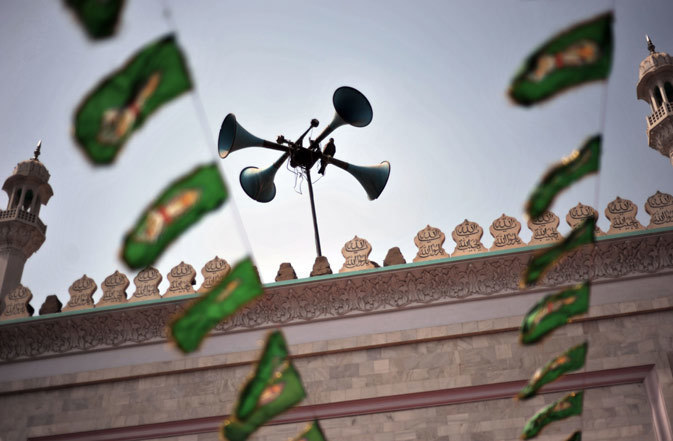A WIDE service road between Clayton Quarters and Martin Quarters along Jahangir Road in Karachi turns into a narrow lane. An easy calm prevails in this densely-populated locality just as in countless other lower middle-class neighbourhoods of the city after Friday prayers.
I pulled up under a neem tree as advised by Abdul Aziz Qadri — peshimam (prayer leader) of Rahmani Jama Masjid. The twittering of the birds overhead is the only sound to be heard.
“Just wait there. I am sending a kid to guide you,” responded Mr Qadri when I called him. After a few minutes I was in the veranda of the masjid where 40 or maybe 50 people, mostly kids and youngsters, were seen roaming around. Some were sitting in one corner having a chat, a few were offering prayers and a handful were busy reciting the Quran.
Also read: Registration of cases under amplifier act angers clerics
“Please come inside for Salaam,” a young bearded man with a brown turban told me. I followed the others and the very next moment almost everyone — except those offering prayers — were in the masjid’s hall. “Imran sahib?” the turbaned man turned to me introducing himself as Mr Qadri.
“Join us; we may talk after this [Salaam],” he said as I introduced myself. With folded arms, Mr Qadri stood close to the minbar (pulpit) and led everyone in reciting the Salaam — Mustafa Jaan-i-Rehmat pay lakhon salaam.
With no microphone and sound system, everyone around him repeated loudly every couplet he recited of the kalaam of Ahmed Raza Khan Barelvi — the 19th-century scholar who is regarded as founder of the Barelvi school of thought in South Asia.
“This is the way we recite Salaam these days,” Mr Qadri told me after the recitation, knowing full well the curiosity which had led me to request a meeting with him. Like any Friday, the cleric was reciting Salaam with pretty much the same members of the congregation last month when a few policemen entered the mosque, seized the sound system and put the people participating in the recitation, including Mr Qadri, into two mobiles and took them to a nearby police station.
“They told us that it’s [reciting Salaam on loudspeakers] not allowed anymore,” he said recalling the events. “Then came their officer who said it’s an illegal act now and that we would be booked for this. Reciting Salaam over loudspeakers is a ‘crime’ in this land of the pure now — isn’t it strange?” observed the cleric smiling broadly.
Mr Qadri and the others, however, were released after a few hours without facing any charges, but were warned following protests by area people and “surety of their characters” by some prominent community members. Since then, he said, it’s been almost a month that Salaam before every azan and after Friday prayers is being recited without loudspeakers.
Under the National Action Plan, banning the use of loudspeakers except for azan and Arabic sermons during Friday prayers is one of the several measures the government had announced. Apparently devised to block hate speech on sectarian grounds, discourage expression of extreme views publicly and promote religious harmony, the move has also affected the Salat-o-Salaam tradition mainly practised by mosques affiliated with the Barelvi school of thought. This has hurt the sentiments of many and a number of people in the city have been detained by the police on this account.
The Rahmani Jama Masjid episode is one such example. But Mr Qadri believes it’s just the beginning of an unrelenting campaign against “misuse of loudspeakers” that would also hit people like him and others for their “love of Salat-o-Salaam”. His fears were heightened last week when the Sindh governor promulgated the Sindh Sound System (Regulation) Ordinance, 2015 to regulate and control the use of sound systems in the province.
In Punjab, the campaign has already caused quite a stir where by the end of last month, the government had arrested more than 2,000 clerics and others for “misusing loudspeakers”; Barelvi groups claim this figure includes those who were reciting Salaam before azan and after Friday prayers.
“We were conveyed over the past few weeks through leaders from parties of Ahle Sunnat and senior clerics like Mufti Muneeb-ur-Rahman that there is no threat [to reciting Salaam on loudspeakers],” Mr Qadri said. “Mostly people are not doing this out of fear. I can compromise under the government rules but would they [the government and police] guarantee that it would bring peace? Will it put an end to hate speech? Will it root out extremism? It’s killing a decades-old tradition and [affecting] people’s sentiments for sure.”
Published in Dawn, March 27th, 2015
On a mobile phone? Get the Dawn Mobile App: Apple Store | Google Play














































